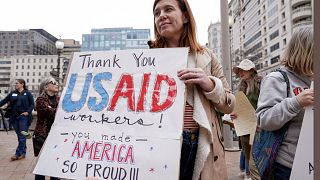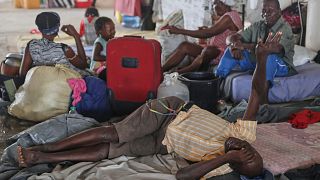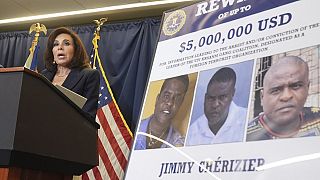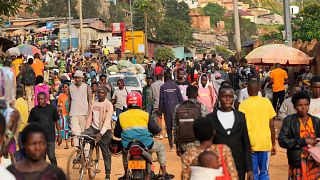Haiti
Hospitals and orphanages that care for HIV/AIDS patients in Haiti fear the impact of U.S. President Donald Trump's move to slash more than 90% of USAID’s foreign aid contracts and $60 billion in overall aid worldwide.
More than 150,000 people in Haiti have HIV or AIDS, although the number is believed to be much higher.
Marie Denis-Luque is the founder and executive director of CHOAIDS (Caring for Haitian Orphans with AIDS), a non-profit organisation that cares for Haitian orphans with HIV/AIDS in the northern city of Cap-Haitien.
She worries for the future, explaining that their medical supplies will last them only til the end of July.
“We do not know what is going to happen after that,” she added.
At a home run by CHOAIDS, HIV-positive women care for 26 children, some as young as 9 months old.
The home used to be located in Haiti’s capital, Port-au-Prince, until 2023 when gang violence forced a move to the coastal city of Cap-Haïtien.
Denis-Luque says medicine is essential in the care for children with HIV.
HIV medication helps control the infection and gives many an average life expectancy.
Without it, the virus attacks a person’s immune system, and they develop AIDS, the late stage of the HIV infection.
Following the cuts to USAID, Denis-Luque started a frantic search for donations but received no responses.
“I cannot watch them die,” she tells The Associated Press, her voice breaking with emotion.
At a hospital near Cap-Haïtien, Dr. Eugene Maklin struggles to care for more than 550 patients who have HIV.
“If we do not find medicines in the coming days, it will lead to disaster,” he warns.
Every year, he would receive more than $165,000 to help HIV/AIDS patients, but that funding has dried up.
Now, he predicts that in two months, the hospital won’t have any HIV medication left.
Earlier in the week, a video showing dozens of HIV-positive people marching outside the office of Haiti’s prime minister in Port-au-Prince circulated on social media, eliciting gasps from viewers.
The protesters did not conceal their faces and spoke openly to reporters, a rare occurrence in a country where having the virus is still heavily stigmatized.
They risked being shunned by society to warn that Haiti is running out of HIV medication and to urge the government to act immediately.
Experts say Haiti could see a rise in HIV infections because medications are dwindling at a time that gang violence and poverty are surging.











01:01
US limits new Covid-19 vaccines to high-risk groups, removes Pfizer for under-5s
01:11
Nearly 200,000 people deported from US since Trump return to office
00:57
Deadly Russian attack on Kyiv leaves 10 killed, nearly 50 injured
00:31
South African politician Julius Malema found guilty of hate speech
01:06
Kilmar Abrego Garcia seeks asylum in US to avoid deportation to Uganda
01:07
Denmark summons US envoy over claimed interference campaign in Greenland